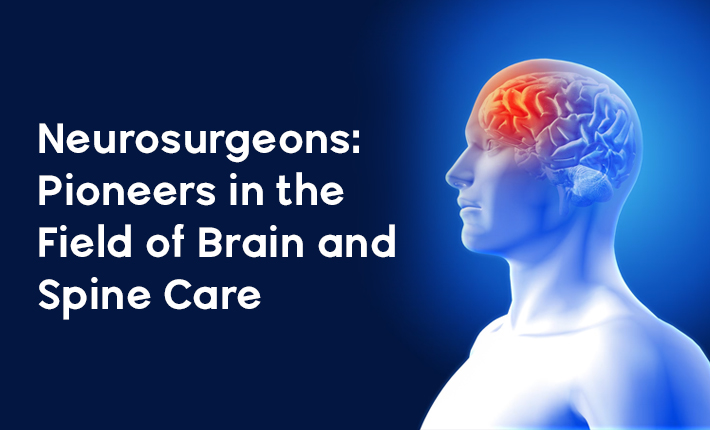Neurosurgery, a field that combines expertise in medicine and surgery, plays a vital role in the treatment of disorders and injuries affecting the brain, spinal cord, and peripheral nervous system. Neurosurgeons are highly skilled medical professionals who dedicate their lives to diagnosing, treating, and managing a wide range of neurological conditions. In this article, we will explore the world of neurosurgery, the educational path to becoming a neurosurgeon, the various specializations within the field, and the remarkable advancements that have revolutionized this domain.
Introduction
Neurosurgery, also known as neurological surgery, is a specialized branch of medicine that focuses on the diagnosis, treatment, and prevention of disorders affecting the nervous system. Neurosurgeons undergo extensive training to acquire the necessary skills and knowledge to perform intricate surgical procedures on the brain, spine, and peripheral nerves. Their expertise enables them to provide life-saving interventions and improve the quality of life for patients suffering from neurological disorders.
What is Neurosurgery?
Neurosurgery encompasses a wide range of surgical procedures performed on the nervous system. It involves intricate operations on the brain, spinal cord, spinal column, and peripheral nerves. Neurosurgeons utilize their expertise in anatomy, physiology, and surgical techniques to treat conditions such as brain tumors, spinal cord injuries, aneurysms, degenerative spine diseases, and epilepsy.
Education and Training
Becoming a neurosurgeon requires exceptional dedication and years of rigorous education and training. After completing a bachelor's degree, aspiring neurosurgeons must attend medical school, where they acquire a strong foundation in medical sciences. Subsequently, they enter a neurosurgery residency program, which typically lasts for several years and provides comprehensive training in both surgical and clinical aspects of neurosurgery. Following residency, some neurosurgeons pursue additional fellowship training to specialize in specific areas such as pediatric neurosurgery or neuro-oncology.
Specializations in Neurosurgery
Neurosurgery offers various sub-specializations that allow neurosurgeons to focus their expertise on specific areas. Some common specializations within neurosurgery include neuro-oncology, vascular neurosurgery, skull base surgery, spinal surgery, pediatric neurosurgery, and functional neurosurgery. These sub-specialties enable neurosurgeons to provide highly specialized care and tailor their treatments to meet the unique needs of patients.
Neurosurgical Procedures
Neurosurgical procedures are intricate and often life-altering. Some common procedures performed by neurosurgeons include brain tumor resection, spinal fusion, cerebral aneurysm clipping, deep brain stimulation, and laminectomy. Each procedure requires precision, meticulous planning, and advanced surgical techniques to ensure the best possible outcomes for patients.
Technological Advances in Neurosurgery
Advancements in technology have significantly enhanced the field of neurosurgery, allowing for more precise and minimally invasive procedures. Techniques such as computer-assisted navigation, intraoperative imaging, neuroendoscopy, and stereotactic radiosurgery have revolutionized the way neurosurgeons approach surgeries. These technological innovations have not only improved patient outcomes but also reduced surgical risks and enhanced recovery times.
Conditions Treated by Neurosurgeons
Neurosurgeons play a crucial role in treating a wide range of neurological conditions. They provide care for patients with brain tumors, spinal disorders, traumatic brain injuries, cerebrovascular diseases, degenerative spine conditions, epilepsy, and movement disorders. By employing their expertise and utilizing the latest medical advancements, neurosurgeons strive to alleviate symptoms, improve quality of life, and restore neurological function for their patients.
Common Challenges Faced by Neurosurgeons
Neurosurgery comes with its fair share of challenges. The complexity of the nervous system, the intricacy of surgical procedures, and the delicate nature of neurological disorders pose unique obstacles. Neurosurgeons must also navigate ethical dilemmas, ensure patient safety, and keep up with rapid advancements in the field. Balancing demanding work schedules and maintaining a healthy work-life balance can also be a challenge for neurosurgeons.
Importance of Neurosurgery
Neurosurgery plays a vital role in the healthcare ecosystem by addressing critical neurological conditions. It offers patients hope and the possibility of a better quality of life. The expertise and innovative techniques employed by neurosurgeons allow them to make significant contributions to medical science and provide relief to individuals suffering from complex and life-threatening neurological disorders.
Ethical Considerations in Neurosurgery
Neurosurgery raises important ethical considerations due to the profound impact it has on patients' lives. Neurosurgeons must navigate delicate decisions, such as determining the appropriate course of treatment, obtaining informed consent, and ensuring patient autonomy. They work closely with medical ethics committees and adhere to ethical guidelines to ensure the highest standards of patient care and safety.
Future Trends in Neurosurgery
The field of neurosurgery continues to evolve at a rapid pace, driven by technological advancements and scientific breakthroughs. The future holds exciting possibilities, including the development of novel surgical techniques, advancements in neuroimaging, and the exploration of regenerative therapies. Collaborative efforts among neurosurgeons, researchers, and technology developers will further propel the field forward, enabling better outcomes and improved patient care.
Best Neurosurgeons in Bangalore
Bangalore, also known as the Silicon Valley of India, is home to a remarkable healthcare ecosystem, including a strong presence of skilled neurosurgeons. These professionals undergo extensive training and bring their expertise to the field of neurosurgery, catering to the needs of patients with a variety of neurological conditions. Neurosurgeons in Bangalore are at the forefront of medical advancements and are dedicated to providing the highest level of care to their patients.
Why Choose Neurosurgeons in Bangalore?
Patients seeking neurosurgical treatment often choose Bangalore for several compelling reasons. The city offers a combination of highly skilled neurosurgeons, state-of-the-art facilities, and a collaborative healthcare environment. Neurosurgeons in Bangalore are renowned for their commitment to patient-centric care, ensuring individualized treatment plans and positive outcomes. Additionally, the city's reputation for medical tourism attracts patients from both within India and abroad, seeking top-notch neurosurgical care.
Conclusion
Neurosurgeons are at the forefront of medical innovation, applying their expertise to treat complex neurological conditions and improve patients' lives. With extensive education, specialized training, and a commitment to advancing the field, neurosurgeons continue to push boundaries and pioneer remarkable advancements in neurosurgery. Their contributions make a profound impact on the healthcare landscape and offer hope to individuals facing neurological challenges.
FAQ's
Q1. What is neurosurgery?
A: Neurosurgery is a specialized branch of medicine that focuses on the diagnosis, treatment, and prevention of disorders affecting the nervous system.
Q2. What do neurosurgeons treat?
A: Neurosurgeons treat a wide range of neurological conditions, including brain tumors, spinal disorders, traumatic brain injuries, cerebrovascular diseases, degenerative spine conditions, epilepsy, and movement disorders.
Q3. What education and training is required to become a neurosurgeon?
A: Becoming a neurosurgeon requires exceptional dedication and years of rigorous education and training. After completing a bachelor's degree, aspiring neurosurgeons must attend medical school, followed by a neurosurgery residency program, which typically lasts for several years and provides comprehensive training in both surgical and clinical aspects of neurosurgery. Following residency, some neurosurgeons pursue additional fellowship training to specialize in specific areas.
Q4. What are some common specializations within neurosurgery?
A: Some common specializations within neurosurgery include neuro-oncology, vascular neurosurgery, skull base surgery, spinal surgery, pediatric neurosurgery, and functional neurosurgery.
Q5. What are some common procedures performed by neurosurgeons?
A: Some common procedures performed by neurosurgeons include brain tumor resection, spinal fusion, cerebral aneurysm clipping, deep brain stimulation, and laminectomy.
Q6. What are some future trends in neurosurgery?
A: The future of neurosurgery holds exciting possibilities, including the development of novel surgical techniques, advancements in neuroimaging, and the exploration of regenerative therapies. Collaborative efforts among neurosurgeons, researchers, and technology developers will further propel the field forward, enabling better outcomes and improved patient care.




